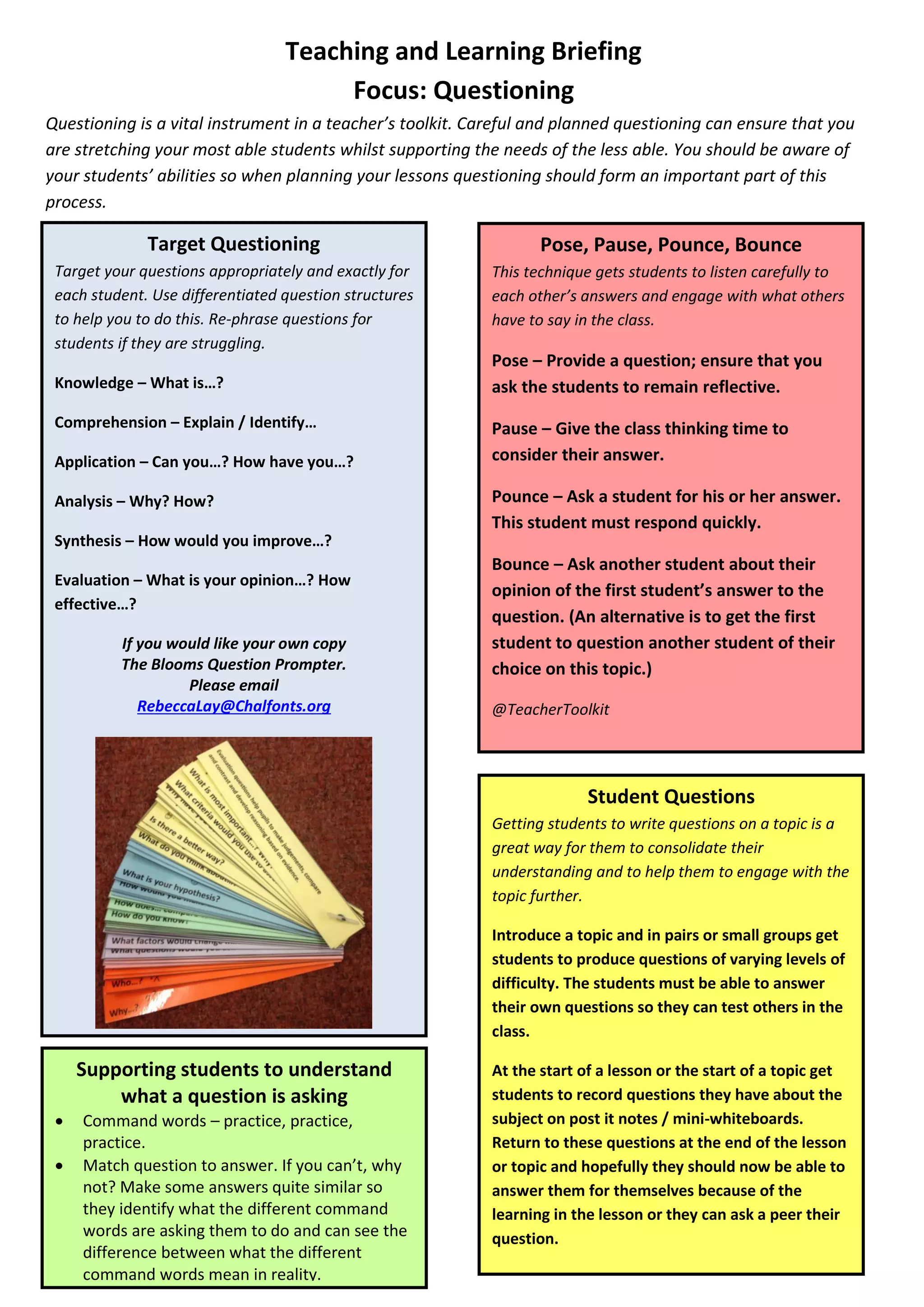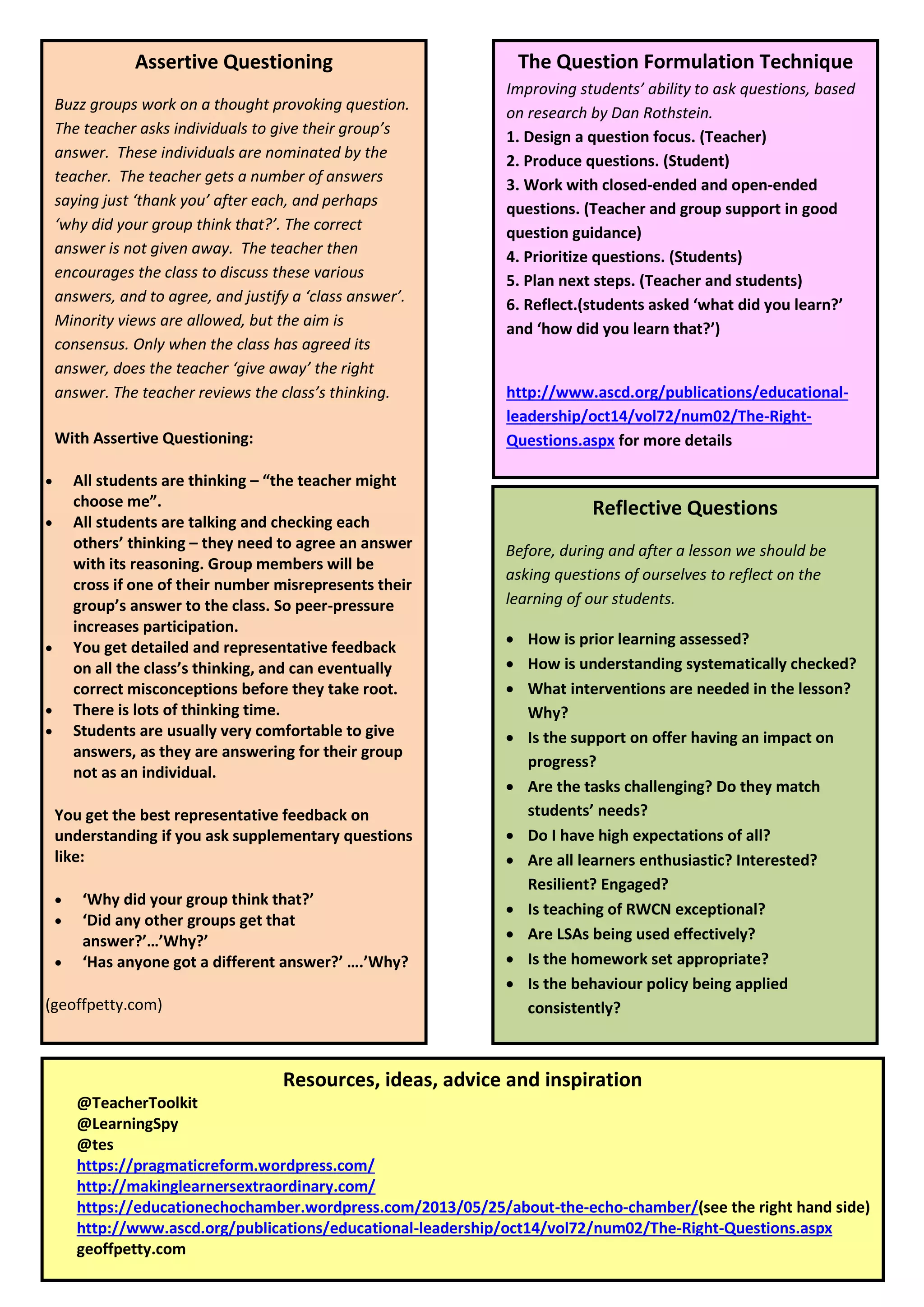Questioning is a vital teaching tool that can be used to stretch high-ability students and support lower-ability students. Teachers should plan questions as part of their lesson planning to account for different student abilities. There are different types of questions that target different cognitive levels, from basic knowledge questions to more complex analysis, synthesis, and evaluation questions. Teachers can use techniques like "Pose, Pause, Pounce, Bounce" to engage students in answering and discussing each other's responses to questions. Getting students to generate their own questions is also an effective way to consolidate understanding of a topic.

